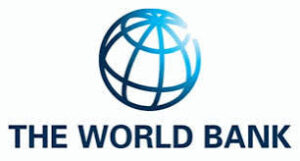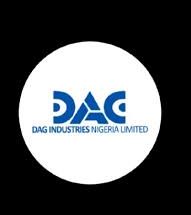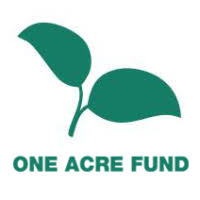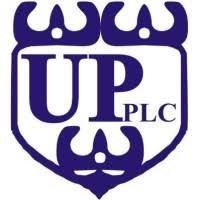
Description
Working at the World Bank Group provides a unique opportunity for you to help our clients solve their greatest development challenges. The World Bank Group is one of the largest sources of funding and knowledge for developing countries; a unique global partnership of five institutions dedicated to ending extreme poverty, increasing shared prosperity, and promoting sustainable development. With 189 member countries and more than 120 offices worldwide, we work with public and private sector partners, investing in groundbreaking projects and using data, research, and technology to develop solutions to the most urgent global challenges. For more information, visit www.worldbank.org.
Western and Central Africa (AFW) Region
We need the best and brightest talent focused on Sub-Saharan African countries in order to harness the potential and innovation happening across the continent. Africa is a continent on the move, with a young population and a growing market of nearly 1.2bn people. We are committed to making the Africa regional teams into leading innovation hubs.
Yet, these vast opportunities are tempered by persistent gaps in education, health, and skills, which have Africa only reaching forty percent of its estimated potential. Moreover, conflict, food insecurity, population growth, and the disruptive forces of climate change threaten to curtail or even reverse the progress that has been made over the past decades.
In West and Central Africa, the World Bank is a leading partner with a growing portfolio of 350 projects totaling more than $38 billion in areas such as agriculture, trade and transport, energy, education, health, water and sanitation – all to support job creation, gender equality, poverty reduction, and better lives. Across the continent, the World Bank’s program has nearly doubled over the last 10 years. By 2030, about 87% of the world’s extreme poor are projected to live in Sub-Saharan Africa, so this is where our mission to end extreme poverty and to promote shared prosperity will be achieved.
Are you ready to make an impact? We are looking for dedicated professionals to join our innovative and diverse team to improve people’s lives
https://www.worldbank.org/en/region/afr/western-and-central-africa
Nigeria
Nigeria is critical to the Bank’s goals of eradicating global extreme poverty and promoting shared prosperity on a livable planet. A multi-ethnic and diverse federation of 36 autonomous states, Nigeria is already Africa’s largest country, with 219 million people, and Africa’s largest economy, with a nominal gross domestic product (GDP) of around US$450 billion (2019). With its abundance of resources, a young and entrepreneurial population, and a dynamic private sector, Nigeria has the potential to be a giant on the global stage. At the same time, policy distortions have contributed to weak growth and the number of poor has been rising. Indeed, with over 40 percent of its population living in poverty, Nigeria has likely surpassed India as the country with the largest population of poor in the world.
Nigeria is at a critical juncture. A new administration took office in May 2023 and has taken several measures to improve the country’s development trajectory. Ongoing priorities include restoring macro-fiscal stability and investor confidence by removing fuel subsidies, taking additional fiscal consolidation measures (especially mobilizing more revenues), and decisively ending the significant amount of central bank budget financing which was previously contributing to Nigeria’s high inflation rate. The central bank is implementing a flexible, transparent exchange rate policy and is refocusing on its price stability mandate. Structural reforms are also needed, including to build on recent performance improvements in the power sector, lift oil production which has ebbed due to underinvestment and security problems in the sector, and increase the economy’s openness to trade.
The World Bank Group has a close partnership with Nigeria. A new Country Partnership Framework (CPF) was approved in December 2020 to guide the World Bank Group’s support to Nigeria from 2021-2024. The World Bank’s portfolio stands at close to $13 billion, and in FY22 Nigeria was the largest recipient, globally, of International Development Association (IDA) financing. Nigeria is also one of the International Finance Corporation’s (IFC) fastest growing portfolios in the region. The Bank’s support is structured around several priorities as highlighted in the CPF which aims to promote diversified growth and job creation, with a focus on youth, women, and the poor in marginalized areas, and social inclusion, through higher quality and efficiency in social service delivery at the state level. It also aims at fostering macroeconomic resilience and advancing structural reforms for private sector-led, non-oil growth.
The Macroeconomics, Trade and Investment Global Practice
The Macroeconomics, Trade and Investment (MTI) Global Practice leads the World Bank Group’s dialogue and engagement with clients on macroeconomics, fiscal policy, trade, competition and investment.MTI links the macroeconomic dialogue with programs focused on expanding the role of the private sector in economic development. For more information: https://www.worldbank.org/en/about/unit/mti-gp
MTI teams provide economic analysis on a range of macroeconomic, fiscal management, trade and investment issues; support bank management with regular economic monitoring and macroeconomic modeling/forecasting; maintain local databases for economic and social statistics for use by Bank staff based in the country offices and Washington D.C; and support the wider country teams. MTI teams work closely with the Country Management Units on a range of macroeconomic issues through Analytical and Advisory products, lending operations and client advisory work.
MTI has a large and exciting program in Nigeria. The MTI team leads operations and delivers regular analytical work such as flagship biannual economic updates, country economic reports, and public finance reviews. It has provided technical assistance on a range of issues including macroeconomic modeling and forecasting, fiscal policy, trade policy, and other topics. The team has a strong technical engagement with key agencies of economic management across government, and other stakeholders in the private sector, academia, civil society and the media. The macro-fiscal policy reform agenda is central to addressing Nigeria’s development challenges, and the macroeconomic situation has been fluid with new issues arising. This creates high internal and external demand for our work, which we deliver in close collaboration with the CMU and colleagues in other practices, and through intensive, flexible engagement with the government and other stakeholders.
Roles & Responsibilities:
The Economist will be an integral part of the Nigeria MTI Team, which comprises a Lead Economist, a Senior internationally-recruited (IRS) Country Economist, a Senior locally-recruited Country Economist, one other IRS Economist, and Consultants (currently, one Extended Term and one Short Term Consultant). They will also be part of the Nigeria Country Engagement Team comprising colleagues from the different practice groups and other senior global practice staff to ensure cross-cutting solutions to the core (typically multi-practice) country engagements around which Nigeria’s Country Partnership Framework and the country program is organized. Each core engagement utilizes different Bank instruments (ASA, policy dialogue, lending).
Responsibilities:
The MTI Nigeria team works collaboratively and the allocation of specific responsibilities amongst team members is flexible according to circumstances and changes in needs. Economists’ work programs include the following areas:
- Co-lead the delivery of the Nigeria Development Update, the flagship biannual economic update for Nigeria.
- Co-lead the biannual Macro-Poverty Outlook for Nigeria, working closely with the Extended Term Consultant to update the underlying Macro Fiscal Model (MFMOD) for Nigeria.
- Supervise the Weekly Update (distributed internally) on the latest economic developments in Nigeria, by closely supervising the work on this product by the Extended Term Consultant.
- Help to maintain, update, and develop macroeconomic databases, including by closely supervising Consultants.
- Lead or contribute to management briefings and MTI inputs for other teams (e.g., macro context paragraphs in program documents).
- Work on continual improvements to the team’s set of analytics for the Nigerian economy.
- Support and participate in the policy dialogue on macroeconomic, fiscal, and monetary policy and economic growth issues with the country authorities.
- Maintain close working relationships with government counterparts and other stakeholders, including with the International Monetary Fund (IMF).
- Support macro, fiscal and debt ASAs including Public Expenditure Reviews (PER)/Public Finance Reviews (PFR) and Debt Sustainability Analysis (DSA).
- Support Development Policy Operations, or other types of lending operations focused on economic and fiscal reforms.
- Other country economist functions as required (e.g., coordinating the annual CPIA exercise).
Selection Criteria
- Minimum of a Master’s degree in economics, with five years of relevant experience. A PhD would be an asset.
- Strong analytical skills in macroeconomic and fiscal management, and ability to conduct policy-relevant research.
- Integrative capacity including the ability to situate sectoral issues within a broader development framework.
- Strong oral and written communication skills, including the ability to present complicated analyses to non-specialist audiences.
- Strong client-orientation and diplomatic skills combined with candor and courage of opinion.
- Ability to work flexibly on a range of assignments and adjust to a variety of evolving tasks to meet often tight deadlines.
- A high degree of self-motivation, positive attitude, and drive.
- Strong commitment to teamwork and knowledge sharing, with a willingness and ability to be part of a highly collaborative team.
For information about WBG Core Competencies, please visit: https://bit.ly/2kbIA7O.
World Bank Group Core Competencies
The World Bank Group offers comprehensive benefits, including a retirement plan; medical, life and disability insurance; and paid leave, including parental leave, as well as reasonable accommodations for individuals with disabilities.
We are proud to be an equal opportunity and inclusive employer with a dedicated and committed workforce, and do not discriminate based on gender, gender identity, religion, race, ethnicity, sexual orientation, or disability.
Learn more about working at the World Bank and IFC, including our values and inspiring stories.
Click Here To Apply


